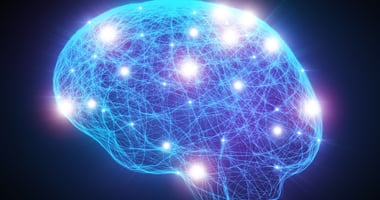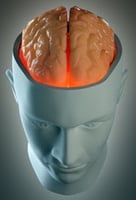A new study supports the clinical relevance of the proposal that dorsolateral prefrontal cortex...
Antidepressants Alter Brain Response to Both Positive and Negative Stimuli, Study Finds
 |
As she reports in Molecular Psychiatry, "Antidepressants act to normalize abnormal neural responses in depressed patients by increasing brain activity to positive stimuli and decreasing activity to negative stimuli in the emotional network and [by] increasing engagement of the regulatory mechanisms in the dorsolateral prefrontal cortex." The dorsolateral prefrontal cortex is known to be a key region in mediating the regulation of both positive and negative emotions, she explained.
These findings about the action of antidepressants in the brain "have important implications in the treatment of depression," she noted, as does evidence about the effectiveness of CBT. Although both antidepressant and cognitive-behavioral treatments "affect emotion-related and prefrontal circuits to a similar end state of normalized emotional network and prefrontal activity, the mechanisms by which each treatment acts may differ. Although it has been proposed that CBT targets prefrontal function as it focuses on increasing inhibitory executive control, the current findings raise the possibility that antidepressants may act more directly on the emotional network. Taken together, a combination of an early antidepressant medication and follow-up CBT may therefore result in a better therapeutic effect, a possibility that needs to be directly addressed in future research."
To read more about how antidepressants work in the brain, see the Psychiatric News articles, "What Is the Link Between SSRIs and Fear Extinction?" and "Study Uncovers More Clues About Antidepressants' Action."
(Image: triff/Shutterstock)





